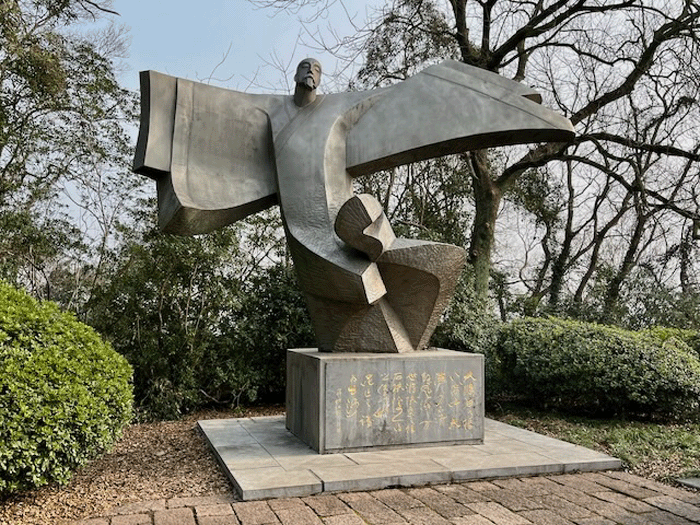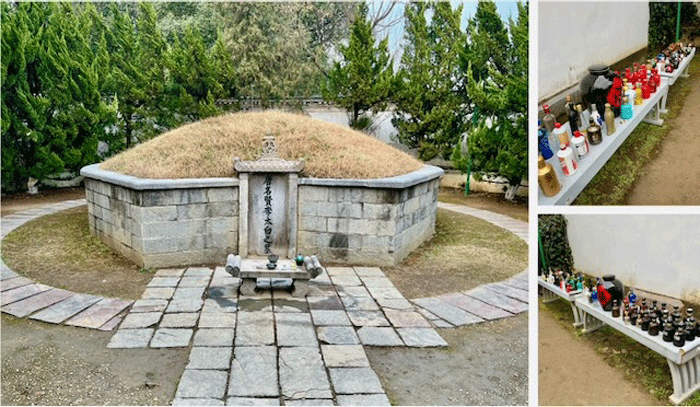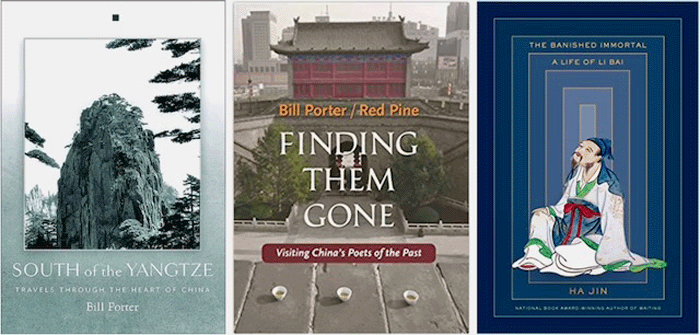Li Bai
I’ve always thought that the person who best captured the spirit of traveling in China is Bill Porter (Chinese name ‘Red Pine’), who does translations of Chinese poems. His notable books include South of the Yangtze and Finding Them Gone, the latter getting its title from the frequent lament of Chinese poets who arrive at a long-sought destination to meet a colleague or friend, only to be disappointed.
One frequent subject of Porter’s books is Li Bai (or Li Pai or Li Po in Western translations), a famous poet from the Tang Dynasty whose poems are memorized by all Chinese school children. One particularly interesting Western tribute is Ezra Pound’s beautiful & touching The River-Merchant’s Wife: A Letter… a poem ‘after Li Po.’ Pound revolutionized modern poetry, and published a well-known collection Cathay dedicated to such translations….. even though Pound did not speak any Chinese! More recently, Li Bai was the subject of a 2019 biography from the National-Book-Award winning author Ha Jin.
There are two things likely to be found in any Li Bai poem: his love of drinking wine & spirits, and the moon. Not surprising, then, the legend of his passing links these topics: supposedly, Li was out in a boat on the Yangtze River, and saw a reflection of the moon on the water – and in his inebriated effort to capture it, fell overboard and drowned. The site of that drowning is memorialized at Caishiji Park in Ma’anshan, a city about 35 kilometers from Nanjing, and it’s long been on my “must-see” list – yet another China site visit disrupted by covid!

Luckily, an HNC law student in one of my ERE classes, Ms. Chen Junjie, was kind enough to take me there this semester, acting as a guide and helping me locate Qian Shaowu’s well-known statue of Li Bai, showing him in flight as an immortal. We also headed to another site a further 20 kilometers away, the tomb where at least some of his remains are reportedly buried. That location had an aroma more like a distillery, however, as those paying homage – including Bill Porter and his colleagues – typically douse the tomb with liquid offerings.

